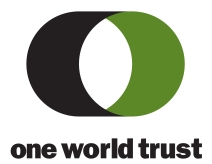Related Research Articles

A non-governmental organization (NGO) is an organization that generally is formed independent from government. They are typically nonprofit entities, and many of them are active in humanitarianism or the social sciences; they can also include clubs and associations that provide services to their members and others. NGOs can also be lobby groups for corporations, such as the World Economic Forum. NGOs are distinguished from international and intergovernmental organizations (IOs) in that the latter are more directly involved with sovereign states and their governments.
As an ethic that spans science, engineering, business, and the humanities, transparency is operating in such a way that it is easy for others to see what actions are performed. Transparency implies openness, communication, and accountability.
Governance is the process of making and enforcing decisions within an organization or society. It encompasses decision-making, rule-setting, and enforcement mechanisms to guide the functioning of an organization or society. Effective governance is essential for maintaining order, achieving objectives, and addressing the needs of the community or members within the organization. Furthermore, effective governance promotes transparency, fosters trust among stakeholders, and adapts to changing circumstances, ensuring the organization or society remains responsive and resilient in achieving its goals. It is the process of interactions through the laws, social norms, power or language as structured in communication of an organized society over a social system. It is done by the government of a state, by a market, or by a network. It is the process of choosing the right course among the actors involved in a collective problem that leads to the creation, reinforcement, or reproduction of acceptable conduct and social order". In lay terms, it could be described as the processes that exist in and between formal institutions.

The United Nations Global Compact is a non-binding United Nations pact to get businesses and firms worldwide to adopt sustainable and socially responsible policies, and to report on their implementation. The UN Global Compact is the world's largest corporate sustainability and corporate social responsibility initiative, with more than 20,000 corporate participants and other stakeholders in over 167 countries. The organization consists of a global agency, and local "networks" or agencies for each participating country. Under the Global Compact, companies are brought together with UN agencies, labor groups and civil society.
A non-state actor (NSA) is an individual or organization that has significant political influence but is not allied to any particular country or state.

The Extractive Industries Transparency Initiative (EITI) is a global standard for the good governance of oil, gas and mineral resources. It seeks to address the key governance issues in the extractive sectors.

The One World Trust is a charitable organization that promotes education and research into changes required in global governance to achieve the eradication of poverty, injustice, environmental degradation and war. It develops recommendations on practical ways to make powerful organisations more accountable to the people they affect now and in the future, and how the rule of law can be applied to all.
An international non-governmental organization (INGO) is an organization which is independent of government involvement and extends the concept of a non-governmental organization (NGO) to an international scope.
Laws regulating nonprofit organizations, nonprofit corporations, non-governmental organizations, and voluntary associations vary in different jurisdictions. They all play a critical role in addressing social, economic, and environmental issues. These organizations operate under specific legal frameworks that are regulated by the respective jurisdictions in which they operate.

Humanitarian Accountability Partnership International, established in 2003, was the humanitarian sector's first international self-regulatory body. A multi-agency initiative working to improve the accountability of humanitarian action to people affected by disasters and other crises, HAP members ranged from organisations with a mandate for emergency relief and development activities to institutional donors. The organisation aimed to strengthen accountability towards those affected by crisis situations and to facilitate improved performance within the humanitarian sector. The ultimate goal of the organisation was to uphold the rights and the dignity of crisis-affected populations across the world.
In political ecology and environmental policy, climate governance is the diplomacy, mechanisms and response measures "aimed at steering social systems towards preventing, mitigating or adapting to the risks posed by climate change". A definitive interpretation is complicated by the wide range of political and social science traditions that are engaged in conceiving and analysing climate governance at different levels and across different arenas. In academia, climate governance has become the concern of geographers, anthropologists, economists and business studies scholars.
Sustainability standards and certifications are voluntary guidelines used by producers, manufacturers, traders, retailers, and service providers to demonstrate their commitment to good environmental, social, ethical, and food safety practices. There are over 400 such standards across the world.
Type II partnerships were developed at the Johannesburg World Summit on Sustainable Development in 2002. Arising in opposition to the state-centred eco-governmentality of previous approaches to sustainable development policy, the partnerships facilitate the inclusion of private and civil actors into the management of sustainable development. The partnerships are employed alongside traditional intergovernmental mechanisms in order to effectively implement the United Nations' Agenda 21 and Millennium Development Goals, particularly at sub-national level. Although widely acknowledged as one of the most innovative and effective developments in global environmental governance in recent years, the partnerships have faced criticism due to fears of a lack of accountability, and the risk that they may exacerbate inequalities of power between Northern and Southern states. Despite these reservations, there is a general consensus among state and non-governmental actors that Type II partnerships are a significantly progressive step in global environmental governance in general, and sustainable development discourse in particular.
The Open Forum for CSO Development Effectiveness was the medium for a process led by civil society organizations (CSOs)between 2008 and 2012, to agree common principles and guidelines on CSO development effectiveness and bring the collective vision of organized people's groups into international development policy and practice.
Multistakeholder governance is a practice of governance that employs bringing multiple stakeholders together to participate in dialogue, decision making, and implementation of responses to jointly perceived problems. The principle behind such a structure is that if enough input is provided by multiple types of actors involved in a question, the eventual consensual decision gains more legitimacy, and can be more effectively implemented than a traditional state-based response. While the evolution of multistakeholder governance is occurring principally at the international level, public-private partnerships (PPPs) are domestic analogues.
Social accounting is the process of communicating the social and environmental effects of organizations' economic actions to particular interest groups within society and to society at large. Social Accounting is different from public interest accounting as well as from critical accounting.
Collaborative partnerships are agreements and actions made by consenting organizations to share resources to accomplish a mutual goal. Collaborative partnerships rely on participation by at least two parties who agree to share resources, such as finances, knowledge, and people. Organizations in a collaborative partnership share common goals. The essence of collaborative partnership is for all parties to mutually benefit from working together.

The Anti-Corruption Coalition Uganda, abbreviated as ACCU, is a Ugandan civil society advocacy organization whose primary aim is to fight against corruption in Uganda. It has a network of nine (9) Regional Anti-Corruption Coalitions (RACCs) in the country.
Fiscal transparency refers to the publication of information on how governments raise, spend, and manage public resources. More specifically, it means publication of high quality information on how governments raise taxes, borrow, spend, invest, and manage public assets and liabilities.

Anriette Esterhuysen is a human rights defender and computer networking pioneer from South Africa. She has pioneered the use of Internet and Communications Technologies (ICTs) to promote social justice in South Africa and throughout the world, focusing on affordable Internet access. She was the executive director of the Association for Progressive Communications from 2000 until April 2017, when she became APC's Director of Policy and Strategy. In November 2019 United Nations Secretary-General António Guterres appointed Esterhuysen to chair the Internet Governance Forum’s Multistakeholder Advisory Group.
References
- ↑ "INGO Accountability Charter" (PDF). Archived from the original (PDF) on 2020-06-10. Retrieved 2018-07-04.
- ↑ Brown, L. David; Moore, Mark H. (2001). "Accountability, Strategy, and International Nongovernmental Organizations". Nonprofit and Voluntary Sector Quarterly. 30 (3): 569–587. doi: 10.1177/0899764001303012 . S2CID 143155215.
- ↑ See for example: Maria Francesch-Huidobro: Governance, politics and the environment: a Singapore study, Institute of Southeast Asian Studies (ISEAS), ISBN 978-981-230-831-3, 2008, p. 60
- ↑ See also: Kumi Naidoo: Global civic society: Rallying for real change. In: Willie Cheng, Sharifah Mohamed: The world that changes the world: How philanthropy, innovation and entrepreneurship are transforming the social ecosystem, Lien Centre for Social Innovation, John Wiley & Sons, ISBN 978-0-470-82715-4, 2010, p. 331
- ↑ Crack, Angela (2013). "INGO Accountability Deficits: The Imperatives for Further Reform". Globalizations. 10 (2): 293–308. Bibcode:2013Glob...10..293C. doi:10.1080/14747731.2013.786253. S2CID 154826067.
- ↑ Schmitz, Hans Peter; Raggo, Paloma; Bruno-Van Vijfeijken, Tosca (2012). "Accountability of Transnational NGOs". Nonprofit and Voluntary Sector Quarterly. 41 (6): 1175–1194. doi:10.1177/0899764011431165. S2CID 144175145.
- ↑ Keating, Vincent Charles; Thrandardottir, Erla (2016). "NGOs, trust and the accountability agenda". The British Journal of Politics and International Relations. 19: 13–151. doi:10.1177/1369148116682655. S2CID 152150155.
- ↑ Duncan Matthews: Intellectual Property, Human Rights and Development: The Role of NGOs and Social Movements, MPG Books Group, UK, ISBN 978-1-84720-785-2, 2011, p. 229
- ↑ Explore Charter background on: "Charter Background". Archived from the original on 2013-05-13. Retrieved 2012-11-23.
- 1 2 Lael Brainard, Derek Chollet (editors): Global development 2.0: can philanthropists, the public, and the poor make poverty history?, The Brookings Institution, ISBN 978-0-8157-1393-7, 2008, p. 175
- ↑ Andrew Stuart Thompson: Laying the groundwork: Considerations for a charter for a proposed global civic society forum. In: James W. St. G. Walker, Andrew S. Thompson: Critical mass: the emergence of global civil society, The Centre for International Governance Innovation and Wilfried Laurier University Press, ISBN 978-1-55458-022-4, 2008, p. 214
- ↑ "Who we are". Accountable Now. Archived from the original on 2017-02-11. Retrieved 2017-02-09.
- ↑ Charte des ONG (NGO Charter) Archived 2011-09-28 at the Wayback Machine , One World Trust, 1997